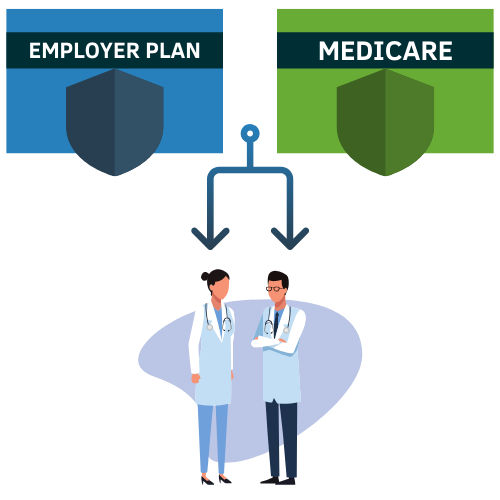Navigating Medicare: Understanding How It Works with Employer Insurance

If you’re turning 65, it’s important to understand how Medicare works with other forms of insurance, especially employer-sponsored insurance. This can be a complex topic, but knowing the basics can help ensure you have the coverage you need as you age.
One of the key things to understand is that the size of your employer will determine whether Medicare is the primary or secondary payer for your healthcare costs.
If your employer has 20 or more employees, then your employer insurance is considered the primary payer and Medicare will be secondary. This means that your employer insurance will pay for covered healthcare costs first, and Medicare will pay for any remaining costs.
On the other hand, if your employer has fewer than 20 employees, Medicare will be the primary payer and your employer insurance will be secondary. In this case, Medicare will pay for covered healthcare costs first, and your employer insurance will pay for any remaining costs.
It’s important to note that even if your employer insurance is primary, you may still want to enroll in Medicare Part A (hospital insurance) if it’s available to you without a premium. This can provide you with additional coverage in case your employer insurance doesn’t pay for all of your healthcare costs.
In addition, you may also want to enroll in Medicare Part B (medical insurance) if you want coverage for doctor visits, preventative care, and other medical services that aren’t covered by your employer insurance. Keep in mind that enrolling in Part B will require you to pay a premium each month.
It’s also important to understand that if you’re covered by both Medicare and employer insurance, you may need to use specific providers or networks in order to take advantage of your coverage. Make sure to check with both Medicare and your employer insurance to understand what providers and services are covered and what costs you may be responsible for.
In conclusion, understanding how Medicare works with employer insurance can be complex, but it’s essential for ensuring you have the coverage you need as you age. If you have any questions or need help navigating your options, don’t hesitate to reach out to a Medicare specialist.”






